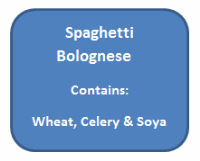Charities receiving donated food
Questions and Answers
-
Why do charities have to register as a food business?
-
What does this registration process involve?
-
If we only prepare drinks and sandwiches or serve breakfast as part of our breakfast club, are we required to register with the environmental health office?
-
Do charities operating occasionally require registration?
-
Does a charity have to comply with food hygiene legislation?
-
What is traceability?
-
What traceability is required if a charity receives food from a food business to cook and/or serve on the premises?
-
Are staff or volunteers working in a charity required to have completed food hygiene training?
-
Are food charities required to maintain a HACCP system?
-
What types of food can be received by a charity?
-
What is the difference between a ‘use-by’ and a ‘best-before’ date?
-
Can food which is beyond its ‘use-by’ date be offered for donation?
-
Can food which is beyond its ‘best-before’ date be offered for donation?
-
Can donated food be frozen by a charity on the ‘use-by’ date?
-
Can charities who freeze food, donate that food to the final consumer?
-
Must allergen information be displayed/available for all foods served or handled in charities?
-
How do I display allergens?
-
What are the refrigeration/cooking/hot holding temperatures?
-
How should food be defrosted safely?
-
Can food be cooked and then chilled to be used in the charity the following day?
-
Can food be cooked and then frozen to be used in the charity at a later date?
-
What does a charity have to do in the event of a withdrawal or recall?
-
What labelling information should be on the foods coming into a charity?
-
Are we required to have information displayed regarding the origin of beef?
-
What additional help is available to our charity?

